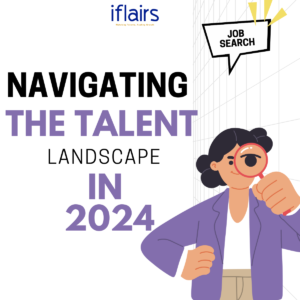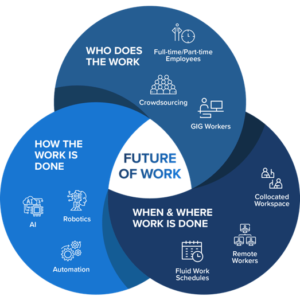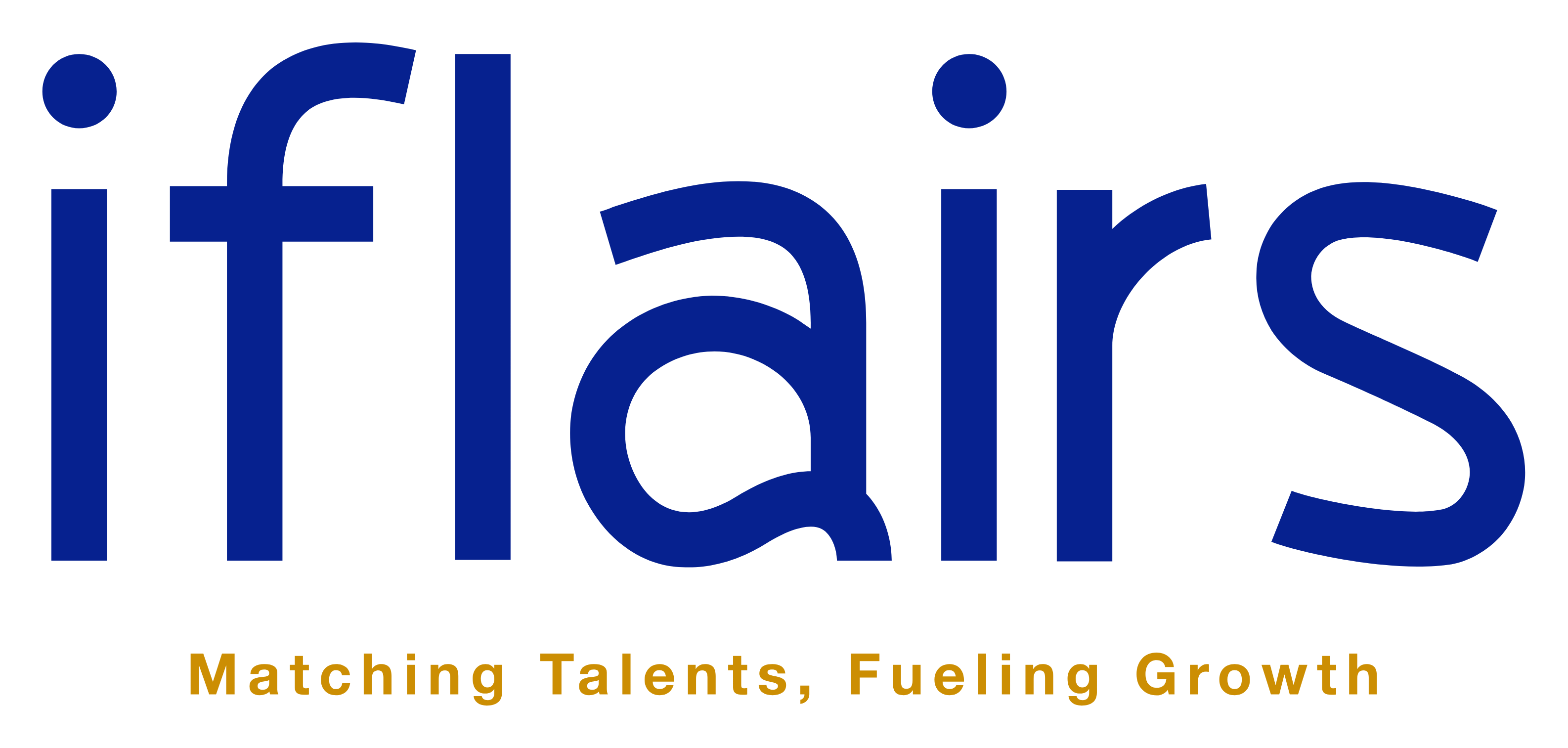 In the dynamic space of talent acquisition, the horizon is ablaze with transformative changes propelled by emerging trends, technological advancements, and shifting demographics. As organizations endeavor to maintain a competitive edge in the bustling job market, deciphering and embracing these trends becomes imperative for success.
In the dynamic space of talent acquisition, the horizon is ablaze with transformative changes propelled by emerging trends, technological advancements, and shifting demographics. As organizations endeavor to maintain a competitive edge in the bustling job market, deciphering and embracing these trends becomes imperative for success.
Let’s delve deeper into these transformative forces that are driving significant changes in how work is done, how talent is sourced, and how organizations adapt to the evolving needs of the workforce. Please read this article; five key trends shaping the new world of work.
- Rise of Remote Work:
The COVID-19 pandemic accelerated the adoption of remote work practices, fundamentally altering the way businesses operate. Remote work offers flexibility and work-life balance for employees while enabling organizations to access a broader talent pool without geographical constraints.
As remote work becomes more prevalent, employers are reimagining their workplace policies and investing in technologies to support virtual collaboration and communication.
- Gig Economy:
The gig economy continues to thrive, offering individuals the opportunity to work on a freelance or contract basis, often through digital platforms. This trend provides flexibility and autonomy for workers while allowing businesses to tap into specialized skills and scale their workforce as needed.
However, it also raises questions about job security, benefits, and labor rights, prompting discussions around regulation and worker protections.
- Skills-Based Hiring:
Traditional hiring practices focused heavily on educational credentials and work experience. However, there is a growing recognition of the importance of skills-based hiring, which emphasizes candidates’ specific competencies and abilities.
Employers are increasingly looking beyond formal qualifications to identify candidates with the right skills to succeed in a rapidly changing job market. This trend promotes inclusivity and diversity by opening up opportunities for individuals with non-traditional backgrounds.
- Technological Advancements:
Advancements in technology, such as artificial intelligence, data analytics, and automation, are revolutionizing the recruitment process. AI-powered tools can streamline candidate sourcing, screening, and assessment, saving time and improving the accuracy of hiring decisions.
Data analytics provide insights into workforce trends and performance metrics, enabling organizations to make data-driven talent management decisions. Automation automates repetitive tasks, allowing HR professionals to focus on strategic initiatives and employee engagement.
- Employer Branding:
Employer branding has become increasingly important in attracting and retaining top talent. A strong employer brand communicates an organization’s values, culture, and employee value proposition, distinguishing it from competitors and resonating with job seekers.
Companies are investing in employer branding initiatives, such as employee advocacy programs, social media engagement, and employer review platforms, to showcase their unique employer brand and attract candidates who align with their values and vision.
Here’s a link to the future of work as shown on the image below.

An Illustration of the future of work, Source: DiYES International School
Emerging Trends in Talent Acquisition:
The gig economy has emerged as a transformative juggernaut, fundamentally altering the conventional employment paradigm. Embracing a model characterized by transient contracts, freelancers, and independent contractors, the gig economy offers unparalleled flexibility for both workers and organizations alike.
By harnessing the prowess of this on-demand talent pool, organizations can deftly adapt to fluctuating market demands, access specialized expertise, and scale operations with unprecedented nimbleness.
Skills-based hiring represents a seismic shift in recruitment ethos, elevating competency over conventional credentials. In an era defined by rapid technological evolution and evolving job roles, traditional qualifications often fall short in capturing the multifaceted capabilities of candidates. Skills-based hiring empowers organizations to discern candidates based on their tangible proficiencies, innate aptitudes, and potential for growth, fostering a more inclusive and meritocratic recruitment milieu.
Employer branding has emerged as the linchpin of triumphant talent acquisition strategies in the fiercely competitive job landscape. Beyond proffering competitive compensation packages, organizations must cultivate a resonant employer brand that strikes a chord with candidates on a profound level.
A robust employer brand not only magnetizes top-tier talent but also catalyzes employee engagement, retention, and allegiance, heralding organizational prosperity in the long haul.
Influences on Recruitment Practices:
Technological breakthroughs are revolutionizing recruitment paradigms, heralding a new era of efficacy, transparency, and ingenuity. From the widespread adoption of applicant tracking systems (ATS) and artificial intelligence (AI) to the ascendancy of video interviewing and virtual hiring events, organizations are harnessing cutting-edge technologies to streamline recruitment workflows, enhance candidate experiences, and fortify data-driven decision-making.
Demographic metamorphoses are fundamentally reshaping the workforce composition, presenting both opportunities and challenges for organizations. As Generation Z makes its foray into the workforce and older cohorts defer retirement, organizations must recalibrate recruitment strategies to resonate with diverse age cohorts, skill proficiencies, and preferences.
Moreover, burgeoning workforce diversity mandates organizations to embrace equitable hiring practices and foster environments conducive to inclusivity.
Market dynamics, encompassing economic vicissitudes, industry perturbations, and geopolitical influences, exert profound reverberations on recruitment methodologies. Organizations must remain vigilant and adaptive to evolving market vicissitudes, preempting shifts in talent exigencies, skill requisites, and competitive exigencies.
By espousing an agile and malleable approach, organizations can fortify their footing for success in an ever-evolving business panorama.
Predictions for the Future of Talent Acquisition:
Peering into the future, the panorama of talent acquisition brims with anticipation, characterized by incessant innovation, disruption, and metamorphosis. Remote work, propelled by the exigencies of the COVID-19 pandemic, will transcend into an omnipresent facet of the job market, effacing geographical barriers and facilitating access to global talent reservoirs with unparalleled seamlessness.
Artificial intelligence (AI) and automation will ascend to preeminence in talent acquisition endeavors, augmenting human capabilities and optimizing recruitment workflows. AI-fueled algorithms will revolutionize candidate sourcing, screening, and assessment, enabling organizations to discern top talent with heightened efficiency and precision.
Personalization will emerge as the hallmark of recruitment stratagems, with organizations harnessing data and technology to orchestrate bespoke experiences for candidates at every touchpoint. From tailored communication and targeted outreach to bespoke assessments and personalized feedback loops, organizations will accord primacy to individualized experiences that resonate with candidates on an emotional and personal echelon.
Please refer to this LinkedIn article about the 6 Predictions for the Future of Recruiting.
Case Studies of Innovative Talent Acquisition Strategies:
Company A: Leveraging Gig Economy Platforms for Agile Talent Acquisition
In response to oscillating market demands and evolving project exigencies, Company A, a burgeoning technology startup, embraced gig economy platforms to access specialized expertise on an ad hoc basis.
By enlisting the services of freelancers and independent contractors, Company A fostered unparalleled flexibility and scalability, facilitating rapid growth and innovation while mitigating fixed overhead costs.
Company B: Embracing Skills-Based Hiring for Anticipative Recruitment
Cognizant of the limitations of conventional qualifications in gauging candidates’ proficiencies, Company B, a global conglomerate, pivoted toward a skills-centric hiring approach. By scrutinizing candidates based on their tangible proficiencies, adaptability, and potential for growth, Company B unearthed top talent endowed with the acumen and resilience to thrive in a dynamic and capricious business milieu.
Skills-based hiring endowed Company B with a cadre of agile and adaptable employees, catalyzing innovation and bolstering competitiveness in the long haul.
Company C: Cultivating a Resonant Employer Brand to Magnetize Top Talent
Amidst escalating competition for talent in the cutthroat job arena, Company C, a vanguard consumer goods enterprise, made substantial investments in nurturing a potent employer brand.
Through strategic employer branding initiatives encompassing employee advocacy programs, brand ambassadors, and immersive social media campaigns, Company C showcased its distinctive ethos, values, and avenues for professional advancement to prospective candidates. As a corollary, Company C attracted top-tier talent, slashed recruitment expenditures, and solidified its stature as an employer of choice in its niche.
Conclusion:
As organizations traverse the labyrinthine contours of tomorrow’s talent landscape, embracing nascent trends, leveraging technological innovations, and prioritizing employer branding and diversity initiatives emerge as indispensable tenets for triumph.
By cultivating a culture of adaptability, foresight, and resilience, organizations can assume the mantle of employers of choice, attract elite talent, and orchestrate sustainable growth and innovation in an ever-evolving business milieu.
Through proactive anticipation, judicious investments, and an unwavering commitment to evolution, organizations can not only weather uncertainty but emerge fortified and emboldened to confront future challenges head-on.


